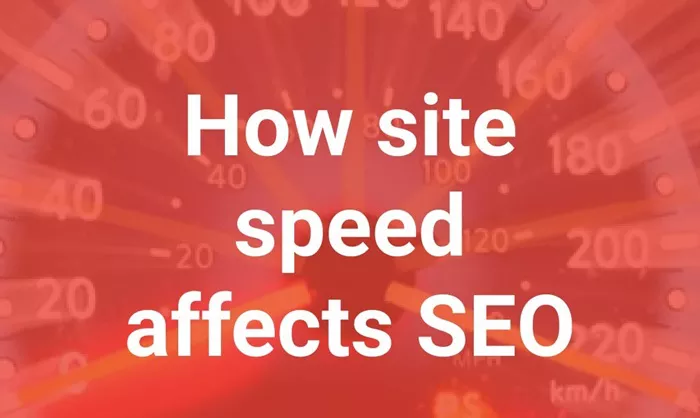Search engine optimization (SEO) is a cornerstone of online success, helping businesses drive organic traffic and gain visibility in a competitive digital landscape. Among the various factors influencing SEO, site speed is one of the most critical yet often overlooked elements. In this article, we will delve into how site speed impacts SEO and why optimizing it should be a priority for every website owner.
What Is Site Speed?
Site speed refers to the time it takes for a web page to load and display its content fully. This encompasses factors such as server response time, file sizes, image optimization, and browser caching. A faster site speed translates to a better user experience, while a slower one can lead to frustration and high bounce rates.
The Importance of Site Speed for SEO
Search engines like Google prioritize user experience, and site speed plays a pivotal role in shaping that experience. Google’s algorithm takes site speed into account as a ranking factor, making it essential for businesses aiming to secure high positions in search results.
Improved User Experience
Fast-loading websites provide a seamless browsing experience, encouraging visitors to stay longer and explore more pages. Conversely, slow sites often lead to abandonment, negatively affecting user engagement metrics like average session duration and pages per session.
Lower Bounce Rates
Bounce rate refers to the percentage of users who leave a site after viewing only one page. A slow-loading site increases bounce rates, signaling to search engines that the site may not meet user expectations. This can result in lower rankings over time.
Mobile Optimization
With the majority of web traffic coming from mobile devices, ensuring fast load times on smaller screens is crucial. Google’s mobile-first indexing means that the mobile version of a site is prioritized in its rankings. Slow mobile experiences can hurt your overall SEO performance.
Core Web Vitals
Google introduced Core Web Vitals as part of its Page Experience update, which focuses on metrics like loading performance, interactivity, and visual stability. Site speed is a key component of these metrics, directly influencing your site’s SEO ranking potential.
How Site Speed Affects Rankings
Search engines aim to deliver the best possible results to users, and site speed is an integral part of this equation. While it’s not the sole ranking factor, its impact on other elements like user experience and engagement can significantly affect your position in search results.
Crawl Budget Utilization
Search engine crawlers allocate a specific amount of time to crawl each site. Faster-loading pages allow crawlers to index more pages within the allotted budget, improving your chances of having all your content indexed.
Enhanced Conversion Rates
Speed doesn’t just affect rankings; it also impacts conversions. Studies show that even a one-second delay in load time can reduce conversions by 7%. Higher conversions signal to search engines that your site is valuable and trustworthy, indirectly boosting SEO.
Competitor Benchmarking
If your competitors’ websites load faster than yours, they may rank higher in search results. Ensuring your site is as fast or faster than competing sites is critical for maintaining competitive parity.
Factors Influencing Site Speed
Several elements determine a website’s speed, and optimizing these can lead to significant improvements:
Hosting and Server Performance
A reliable hosting provider and a well-configured server are foundational to site speed. Shared hosting plans may be cost-effective but can lead to slower load times during high traffic periods.
Image Optimization
Large, uncompressed images can drastically slow down your site. Using tools to compress images and selecting appropriate file formats (like WebP) can improve loading times.
Browser Caching
Enabling browser caching allows users to store parts of your website locally, reducing load times for repeat visits.
Minimizing HTTP Requests
Reducing the number of elements on a page, such as scripts, stylesheets, and images, minimizes HTTP requests, speeding up load times.
Content Delivery Network (CDN)
A CDN distributes your content across multiple servers worldwide, delivering it to users from the nearest server and enhancing speed.
JavaScript and CSS Optimization
Minifying JavaScript and CSS files eliminates unnecessary characters, reducing file sizes and speeding up load times. Loading these files asynchronously also prevents them from blocking the rendering of your pages.
Best Practices for Optimizing Site Speed
Improving site speed requires a comprehensive approach. Implement these best practices to ensure optimal performance:
Conduct Regular Speed Tests
Tools like Google’s PageSpeed Insights, GTmetrix, and Pingdom can help you identify performance bottlenecks and monitor improvements.
Optimize Images and Videos
Compress media files, use responsive design, and implement lazy loading to defer the loading of off-screen content.
Upgrade Hosting Plans
Consider switching to dedicated or cloud hosting for better server performance and scalability.
Enable Gzip Compression
Gzip compression reduces the size of your web files, making them faster to load.
Leverage Browser Caching
Set expiry dates for static resources to improve load times for returning visitors.
Reduce Redirects
Minimizing redirects reduces additional HTTP requests and speeds up load times.
The Long-Term Benefits of a Fast Website
Investing in site speed optimization not only enhances SEO but also boosts overall website performance and user satisfaction. Fast websites:
- Improve customer retention
- Foster better engagement
- Strengthen brand reputation
- Increase revenue through higher conversions
Conclusion
Site speed is more than just a technical metric; it’s a fundamental aspect of SEO and user experience. In today’s fast-paced digital world, users expect websites to load in an instant. By optimizing your site speed, you can improve search rankings, attract more traffic, and provide a superior browsing experience. Make site speed optimization a priority, and reap the rewards of a faster, more efficient website.
Related Topics
- How Does Web Hosting Affect SEO?
- Why Does Ahrefs Show Backlinks From Two Months Ago?
- Why Does SEO Cost So Much?

